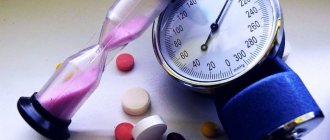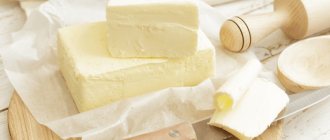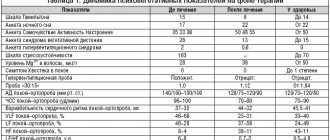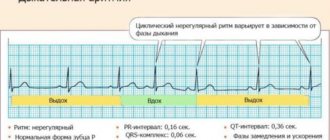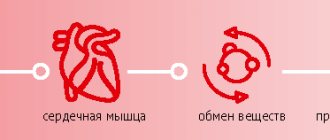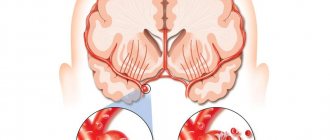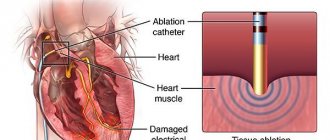Cooking and eating
With moderate mechanical care. Meat and fish are boiled. Prepared without salt...
Allowed
Bread and flour products: wheat bread made from grade 1 and 2 flour, yesterday’s baking or slightly dried, dietary salt-free bread, savory cookies and biscuits
Soups: 250-400 g per serving, vegetarian with various cereals, potatoes and vegetables, beetroot soup, you can add sour cream, herbs
Meat and poultry: lean varieties of beef, veal, meat and trimmed pork, rabbit, chicken, turkey. After boiling, you can bake or fry, or make jellied dishes. Boiled sausages – limited
Fish: low-fat varieties
Dairy products: milk if tolerated, fermented milk drinks, low-fat cottage cheese and dishes made from it, cheese Eggs: up to 1 pc. per day, soft-boiled, baked omelettes, egg white omelettes or added to dishes
Cereals: dishes from various cereals in the form of porridges, casseroles, boiled pasta
Vegetables: boiled, baked or raw potatoes, carrots, beets, zucchini, pumpkin, tomatoes, lettuce, cucumbers
White cabbage and green peas in limited quantities. Green onions, dill, parsley - in dishes
Fruits, sweet dishes: soft ripe fruits and fresh berries, dried fruits, compotes, jelly, mousse, jellies, milk jelly and creams, honey, jam, non-chocolate candies
Drinks: weak tea, coffee drinks, fruit and vegetable juices, rosehip infusion, limited grape juice
Fats: unsalted butter and ghee, natural vegetable oils
Basic principles of nutrition for cardiovascular diseases:
1. Eliminate foods that excite the nervous system from your diet
.
Firstly, there is caffeine and caffeinated drinks: cocktails, energy drinks and even all kinds of colas. They increase the heart rate, further loading the heart muscle. Doctors include strong tea, rich broths and dishes containing large amounts of spices as stimulating foods. 2. Reduce your intake of animal fat
.
Fatty foods of animal origin - canned meat, pork, fatty poultry, all types of offal, sausages, smoked meats and lard - are rich in harmful cholesterol, which is deposited in blood vessels in the form of plaques. They can disrupt blood flow, including in the vessels that supply the heart itself. But there is still room on the menu for lean veal, rabbit, chicken and turkey. Boil, steam or bake - any cooking method that does not add additional fat will do. 3. Reduce the amount of salt in your diet
.
This will reduce the amount of fluid that is retained in the body and reduce the load on the heart, which is forced to pump an increased volume of blood. High blood pressure, in particular, develops due to fluid retention. Try to avoid pickles and marinades, and do not buy ready-made sauces, smoked meats and sausages. For the same reason, it is better to avoid fast food, snacks and processed foods, which often have a high salt content. 4. Add Omega-3 fatty acids to your diet
.
These beneficial substances help reduce cholesterol levels in the body, prevent the process of blood clots and lower blood pressure. Omega-3 is most abundant in vegetable oils and fish oil. Experts recommend choosing not too fatty fish and seafood. It is best to boil them, but you can also fry them without fat. But salted, smoked and canned fish are harmful to the heart due to excess salt content. 5. Eat small meals
.
In heart disease, a full stomach and bloating lead to irritation of the autonomic nerves responsible for the functioning of the heart. And this, in turn, leads to interruptions in its work. Doctors believe that 4-5 small meals during the day will be easily digested and will not create additional stress on the nervous, and, therefore, cardiovascular system.
Garnish
Cholesterol . Many foods containing cholesterol are also rich in dangerous solid fats. But among them there are real treasure troves that hide a lot of useful substances that neutralize harmful effects. For example, eggs. It is no coincidence that today restrictions on them have been lifted, and the strictest recommendations allow you to eat 6 eggs per week. Only heart patients need restraint in their use.
Vitamins. Ascorbic acid reduces inflammation in blood vessels. Especially useful for smokers and fat lovers. Vitamin E reduces inflammation in blood vessels, which always accompanies atherosclerosis, and prevents the formation of blood clots. A lack of B vitamins and folic acid increases the risk of atherosclerosis. Moreover, all serious and authoritative medical organizations emphasize that vitamins should be obtained from foods, and not from tablets.
Minerals. The harm of sodium is well known, but foods that contain a lot of it are much less familiar (see picture). Potassium is a sodium antagonist and prevents hypertension (high blood pressure) and strokes. Magnesium not only protects against heart disease and hypertension, but also reduces blood sugar and strengthens the immune system. Calcium also has a positive effect on blood pressure, and in older women it reduces the risk of heart attacks.
First course
Carbohydrates. Few people know that foods containing these substances can increase cholesterol and fat levels in the blood. This is how our body works: it can make fat from various substances, especially those carbohydrates that are easily absorbed by the body - quickly absorbed into the blood from the intestines. Only carbohydrates that are difficult to digest are beneficial. They can be found in products made without added sugar and starch and not passed through a food processing sieve. And the best carbohydrates are found in whole grain products. They really protect the heart and blood vessels. Such grains are simply a storehouse of vitamins, minerals, antioxidants and dietary fiber. The fibers themselves come in two types - insoluble (mostly fiber) and soluble. The latter even prevent the absorption of cholesterol in the intestines and reduce fats and sugar in the blood. But we need both types of fiber in our diet.
Fats. Only two types of fats increase the risk of cardiovascular disease: solid fats and so-called trans fats. The first are natural, they are found in meat, poultry and solid palm oil. Trans fats are practically artificial; they are heavily processed liquid vegetable oils that have been made solid. They almost never go on sale in their pure form, but the food industry uses them with all their might. They are often found in margarines and prepared foods, hiding behind the terms “hydrogenated” and “hydrogenated” fats, which are always indicated on the label. Other types of fats are beneficial for the heart and blood vessels, but only in moderation. When in excess, they contribute to the development of obesity, which means they harm blood vessels.
Diet for cardiac patients
1.FATS: Recommended: Limit intake of all fats.
Limited intake: Butter and margarine containing polyunsaturated fatty acids in large quantities (in Russia, “Zdorovye” margarine). Oil: sunflower, corn, saffron, soybean, olive, cottonseed.
Not recommended : Oil and fat obtained during frying meat and meat products, lard, coconut oil. Margarines without a high unsaturated fat content label. Melted or vegetable oil of unknown origin. Hydrogenated oils and margarines.
2. MEAT: Recommended: Chicken, turkey, veal, rabbit, game (wild ducks, partridges, hare)
Limited intake: Lean beef, bacon, ham, lean ground beef, liver and kidney.
Not recommended : Meat with visible fat, lamb brisket and ribs, pork (meat from the belly area), bacon with layers of fat, sausages, sausages, salami, pate, scrambled eggs with meat, duck, goose, meat pastes, poultry skin.
3. DAIRY PRODUCTS : Recommended: Skim milk, low-fat cheeses (for example, pressed cottage cheese), skim milk cheese, curdled milk cheese. Low fat kefir. Egg white.
Limited intake: Semi-skimmed milk, medium-fat cheeses (Eden, Camembert). Processed, spreadable cheeses. 1-3 eggs per week. Half-fat cheeses.
Not recommended : Unskimmed milk, condensed and concentrated milk, cream, whipped cream. Fat cheeses: Cheddar, Cheshire, etc. Cream cheeses. Fat kefir.
4. FISH : Recommended: all “white” fish: cod, hoddock, flounder. Fatty fish: herring, mackerel, sardines, tuna, salmon (chum salmon, pink salmon, salmon)
Limited intake: Fish cooked in suitable oil. Shellfish. Marine crustaceans.
Not recommended : Fish roe.
5.FRUITS/VEGETABLES : Recommended: All fresh and frozen vegetables, peas, beans, olives. Dried legumes: peas, beans, lentils. Boiled potatoes (peeled or “in their jacket” (eating the skin whenever possible). Fresh fruits, unsweetened canned fruits, walnuts, chestnuts.
Limited intake: Fried, stewed potatoes cooked in suitable oil. Fruits in syrup. Candied fruits. Almond. Hazelnut.
Not recommended : Fried, stewed potatoes (if they are cooked in unsuitable oil). Potato chips, crispy potatoes.
6. CEREALS : Recommended: wholemeal flour (unsifted), bread made from it, unground (whole) cereals, oatmeal, wheat flour. Oatmeal. Unpolished rice and rice paste. Rusks cooked in the oven. Oat cookies. Yeast-free bread.
Limited intake: White flour, white bread, sweet breakfast cereals, polished (white) rice and rice pasta. An ordinary semi-sweet biscuit. Biscuit made with water.
Not recommended: Cakes. Biscuits with spicy cheese. Confectionery products (cookies, cakes) purchased in a store.
7.BAKING : Recommended: Low-fat puddings: jelly, sherbet, skim milk puddings, low-fat relishes (purees).
Restricted intake: cakes, confectionery, biscuits and condiments prepared with suitable butter or margarine. Homemade snacks with unsaturated fats.
Not recommended : Cakes, puddings, biscuits containing saturated fat. Dumplings, puddings made with fat. Seasonings with cream and butter. All store bought puddings and condiments. Snacks cooked in “boiling” oil (fried side dishes). Milk ice cream.
8. DRINKS : Recommended: Tea, coffee, mineral water, unsweetened drinks, fruit juices without sugar. "Clean" soups. Homemade vegetable soups. Low alcohol beer.
Limited intake: Sugary drinks, low malt drinks. low fat liquid chocolate (rare). Batch soups, meat soups. Alcohol.
Not recommended : Irish coffee (coffee with cream and alcohol), fat-rich malt drinks, chocolate, creamy soups.
9.CANNED CONSTRUCTIONS, SWEETS : Recommended: “Clean” marinades. Sweets without sugar: saccharin tablets or liquid sweets with aspartame.
Limited intake: Sweet marinades and seasonings (from fruits, peppers), which are served with cold meat (curry). Marmalades. Honey. Syrups. Marzipan. Peanut butter. Lemon curd. Hot sweets. Marshmallows, mints, sugar, sorbitol, glucose, fructose.
Not recommended : Chocolate creams, pie fillings made with animal fats. Taffy. Sweets. Cream obtained by whipping butter and sugar. Chocolate.
10. REST: Recommended: herbs, spices, mustard, pepper, vinegar. Low-fat condiments: lemon, yogurt.
Limited intake: Meat and fish spreads, low-calorie cream and mayonnaise. Bottled sauces. French seasonings. Soy sauce.
Not Recommended : Regular salad cream, mayonnaise, cream or dressings containing cream cheese.
EXPLANATIONS FOR DIETARY RECOMMENDATIONS
“Recommended” foods are those that are low in fat and/or high in pectin fiber.
The foods listed in the "limit intake" section contain polyunsaturated fats or small amounts of saturated fat. If your diet contains a small amount of fat, these foods are allowed to a limited extent. For example: “red” meat (limited intake) - i.e. no more than three times a week, medium-fat cheeses and fish spreads - once a week, or homemade cookies, biscuits, confectionery products prepared using suitable (containing polyunsaturated fats) margarine or oils - twice a week, or fried potatoes (baked) cooked in the appropriate oil once every two weeks.
The foods listed in the “not recommended” section contain high amounts of saturated fat and should be avoided as much as possible.
